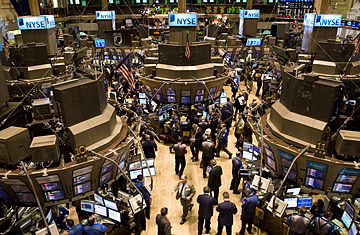
The Dow's descent below 7,000—for the first time since early 1997—was greeted with much wailing on Wall Street and in the media. That's understandable: the market's fall reflects a growing consensus that the current recession will be nasty, brutish and long—which it surely will be. And if you own stocks, you can't sell them for nearly as much as you could a couple of years ago or even a couple of weeks ago. But the recent fall in stock prices also means they are now, by just about every possible measure, fairly priced or downright cheap. That doesn't mean prices won't go even lower. It does mean there's no longer a huge, unsustainable overhang of overvaluation weighing on the market and the economy. House prices may not have reached this point of cheapness yet, but they're getting there. The great turn-of-the-millennium asset bubble has finally deflated. That means the prospects for positive asset returns in the future have improved. It may also teach Americans, for a few decades at least, that buying and selling houses and financial instruments doesn't bring lasting prosperity. What brings prosperity is work.